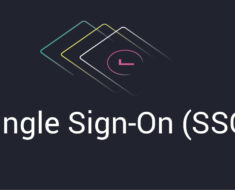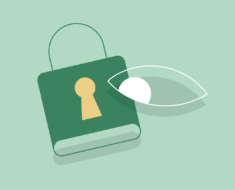
Identity theft is a serious crime that can have devastating consequences for victims. It occurs when someone steals your personal information, such as your Social Security number, credit card number, or driver’s license number, and uses it to commit fraud or other crimes.
Identity theft can be difficult to recover from, and it can take years to repair the damage to your credit and reputation. That’s why it’s so important to take steps to protect yourself from identity theft in the first place.
What is the Identity Theft Act in the USA?
The Identity Theft Act of 1998 is a federal law that makes it a crime to knowingly transfer or possess another person’s personal information without their consent, with the intent to commit fraud or other crimes. The law also provides victims of identity theft with certain rights, such as the right to place a fraud alert on their credit reports and the right to obtain a free copy of their credit reports from each of the three major credit reporting agencies once a year.
5 Ways to Prevent Identity Theft in the USA
- Keep your personal information safe. This includes your Social Security number, credit card numbers, driver’s license number, and bank account numbers. Don’t give this information out to anyone unless you absolutely have to, and be careful about where you write it down.
- Be careful about what emails you open and what links you click on. Phishing emails are a common way for identity thieves to steal your personal information. These emails often look like they’re from a legitimate company, such as your bank or credit card company. But when you click on a link in the email or open an attachment, it can install malware on your computer that can steal your personal information.
- Use strong passwords and enable two-factor authentication. Your passwords should be strong and unique, and you should change them regularly. Two-factor authentication adds an extra layer of security to your accounts by requiring you to enter a code from your phone in addition to your password when you log in.
- Monitor your credit reports and bank statements. Review your credit reports regularly for any unauthorized activity. You can get a free copy of your credit report from each of the three major credit reporting agencies once a year at AnnualCreditReport.com. You should also review your bank statements regularly for any unauthorized charges.
- Shred sensitive documents before you dispose of them. Identity thieves can often steal your personal information from documents that you throw away in the trash. Shred any documents that contain your personal information before you dispose of them.
What to Do in Case of Identity Theft in the USA
- Contact the Federal Trade Commission (FTC). The FTC is the federal agency that handles identity theft complaints. You can file a complaint online or by calling 1-877-ID-THEFT (1-877-438-4338).
- Place a fraud alert on your credit reports. A fraud alert tells creditors to contact you before they open any new accounts in your name. You can place a fraud alert on your credit reports by contacting the three major credit reporting agencies: Equifax, Experian, and TransUnion.
- Consider placing a credit freeze on your credit reports. A credit freeze prevents anyone from opening a new account in your name without your permission. You can place a credit freeze on your credit reports by contacting the three major credit reporting agencies.
- Monitor your credit reports and bank statements closely. Continue to review your credit reports and bank statements regularly for any unauthorized activity.
What is LifeLock in the USA?
LifeLock is a company that offers identity theft protection services. LifeLock monitors your credit reports and bank statements for unauthorized activity, and it will send you alerts if it detects anything suspicious. LifeLock also offers other services, such as credit monitoring, lost wallet assistance, and social media monitoring.
Identity theft is a serious crime, but there are a number of things you can do to protect yourself from becoming a victim. By following the tips above, you can help keep your personal information safe and reduce your risk of identity theft.
Dil Bole Oberoi





